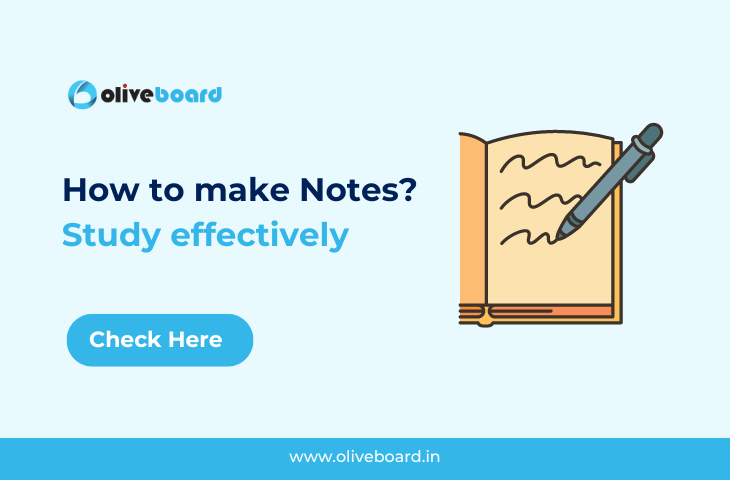The government exam season is here and we are sure your preparation levels would be soaring right now. This blog post is to assist you in making your study sessions more productive. We would be looking at a very crucial aspect of the preparation process, which is – making NOTES.
We all know that the syllabus to be covered for all competitive exams is vast and especially so when you’re talking about the UPSC CSE. So in this post, we’ll try to simplify the whole process by presenting some critical, indispensable note-making tips. The first step is to understand the purpose of making notes.
Why should we make notes?
- Understanding a topic is the easy part, remembering is difficult. Hence it is essential to make notes of important topics so that you can glance through them whenever you want to revise. Well-made notes save you the trouble of revisiting the voluminous study material.
- Writing down points helps you to remember them better. Note that while you’re writing, you’re also thinking about it, which helps your mind engage more actively with the information and thus store it better.
So now that we have understood the ‘why’, let’s address the elephant in the room and talk about the ‘HOW’.
Check out the tips & tricks for Quantitative Aptitude
Some note-making techniques:-
1. Linear Notes
The linear notes method is in which you condense the material you have read using headings and subheadings. This is the best method for making notes while reading a book, newspaper, or magazine.
Avoid getting carried away and copying a lot of material.
A good way is to keep loose sheets of paper handy and to jot down important points about a given topic. One can use colors, block letters, boxes, and highlighters to immediately draw your attention to the critical points and would aid in a quick recall.


2. Pattern Notes
In this method, one writes the main idea at the center of the page and each line radiating from it represents a branch of that idea. Each point is written as briefly as possible. (Think of flowcharts and mindmaps.)
An advantage of this type of note-making is that one can see the entire information without turning pages and it helps us establish links between various thoughts more easily.
Since these notes are in a diagrammatic format as against the textual one, it is much easier to remember the content of the notes.
The disadvantage is missing out on information. Using keywords can remind of basic ideas but when it comes to remembering details it is sometimes inefficient.
Thus, a good set of notes is a combination of these two techniques chosen with respect to the kind of material that is being converted into notes.
Components of Effective Notes
- Topic outline, key points, advantages and disadvantages, and finally the conclusion
- Well-labeled diagrams, tables, graphs, or sketch maps wherever necessary
Some tips for note-making
- Use loose sheets as they help in organizing and adding content relating at a later time.
- Also, ensure you include information in points and do not write long paragraphs. That would defeat the purpose of making notes. The idea is to keep it crisp, concise, and focused on the main idea.
- Try to use different colored pens for headings, sub-headings, etc.
- Maintain separate folders/files for each subject. You could also use sticky notes to demarcate one section from the other.
- Keep revising the notes or just glance through the important points every once in a while.
Hope this helps. All the best.
- Indian Bank Recruitment 2025 Out for 1500 Apprentice Posts
- Indian Bank Apprentice Salary 2025, Pay Scale, Salary Structure
- Indian Bank Apprentice Syllabus & Exam Pattern 2025, Check Details
- Railway RPF Syllabus 2024, Check Exam Pattern, Topic And Syllabus
- SSC JE vs RRB JE, Which Is Better? Know Detailed Comparison

The most comprehensive online preparation portal for MBA, Banking and Government exams. Explore a range of mock tests and study material at www.oliveboard.in
